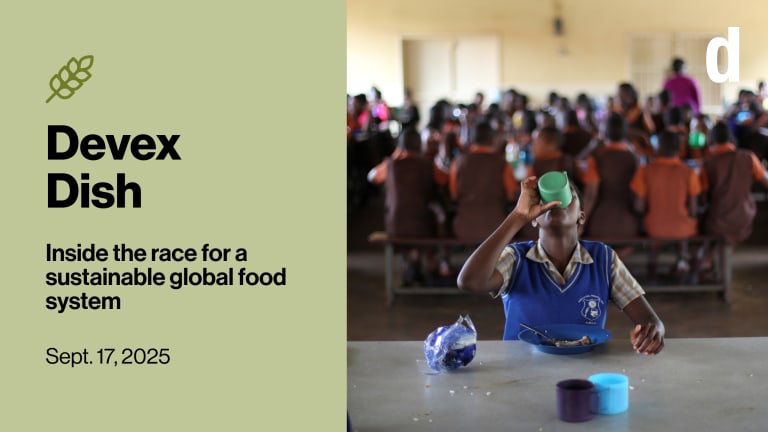For the past month, Devex — and a host of high-profile partners — have shone a spotlight on one of the most pressing challenges of our time: ensuring global food security. We’ve featured contributions from leading experts, practitioners and advocates and reported on some of the most cutting-edge, perhaps even surprising efforts to feed a world that is getting hotter, more crowded and more urban.
“Feeding Development,” our campaign to highlight food security, kicked off July 8 and has since ignited a conversation on the Devex platform and way beyond.
With support from our partners — ACDI/VOCA, Chemonics, Fintrac, GAIN, Nestlé and Tetra Tech — and from the development professionals who commit their daily energy to tackling food security challenges, we’ve taken this discussion global. We’ve heard about private sector efforts to combat climate change impacts on agricultural supply chains. We’ve shared tips for how agricultural development groups can invest in land rights. And we’ve explored the link between the USAID Forward reform agenda and sustainable supply chains.








